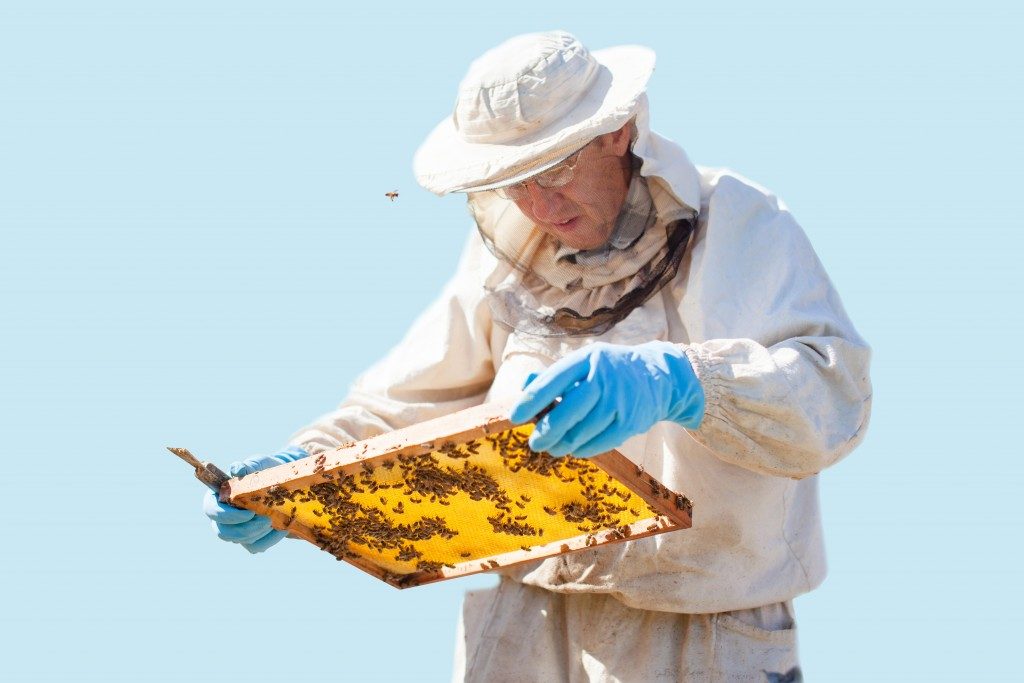When Sir Edmund Hillary climbed Mt, Everest in 1957, he achieved several milestones. He was the first man (with Sherpa Tenzing Norgay running a close second) to climb the top of the world; he was the first Kiwi (New Zealander) who attained world fame, and he was the first celebrity beekeeper.
Of course, the third point is arguable, but Hillary was a full-time beekeeper when he managed this incredible feat. He came from a family of apiarists and attended 1600 hives and faced more than a dozen bee-stings daily. His father edited a beekeeping journal while his mother bred and sold queen bees. Hillary and his brother Rex had beekeeping running in their veins.
Which begs the question: What does it take to make a good beekeeper? You might think the focus and patience of an Edmund Hillary is a requirement plus the knowledge of where to buy beekeeping supplies; but fortunately, you only need one of these qualities. The following are the most important things you need to have when you want to be an apiarist.
A Love of Nature and Animals…ALL Animals
If you want to start any hobby that deals with animals and the outdoors, a love of nature and animals is essential. You should also have no allergies to stings or pollen, as you could be exposed to both regularly. Some people are mildly allergic, but it’s best to see your doctor if you are unsure of your condition.
A Curious Mind
You should be curious about nature and continue learning about your bees, the hives, and materials you could use. You should know about the different bee species you could raise, and the types of hives that would suit them. You should know which bees are found in your area so you won’t disturb the balance of the ecosystem.

You should also keep track of the latest materials used in beekeeping, even though there are many other factors why some colonies thrive, and some don’t. As long as the hive is large enough to hold the colony and their food through the winter season, it does not matter what kind of material it is made of. Choose a material that suits your environment and budget, and let good husbandry handle the rest.
Persistence
If you have ever had a pet, you know that loss is a terrible thing. It is no lesser when your bee colony fails. There are many factors why a colony would not survive, but you would not be the first beekeeper to experience this.
You should know the various strategies to keep a colony running, and through experience know which one works best for you. You can split colonies, capture swarms, remove hives from structures, or take the nucleus colony from your dying stock. You need to know how to control disease and pest, and whether your colonies are getting sufficient nutrition.
Hobby or Money-Making Investment?
Whatever your reason for keeping bees, you need to understand that the only difference is the largeness of your operations and the time you spend on your colonies. For those who start small, they only need to spend at most 40 hours A YEAR to manage it. The most labour-intensive time you’ll spend on your beekeeping hobby is building the equipment. But after that, you only need to spend a few minutes to check on your bees.
Beekeeping has always been the kind of hobby a thoughtful person would consider, but it’s also one of the most important contributions to the human diet and to world ecology. So before World Bee Day on May 20, why not follow in the footsteps of Sir Edmund Hillary and give apiary a try?
